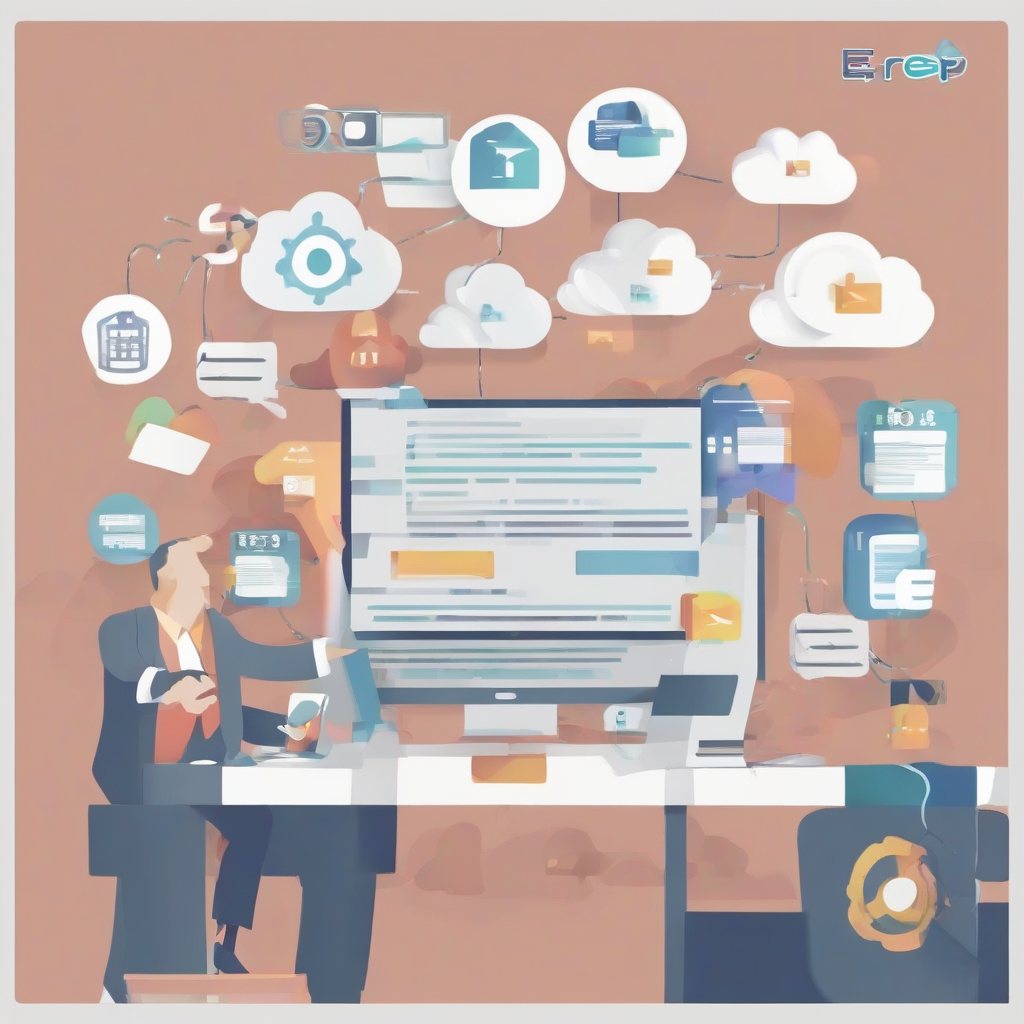Best ERP for Startups: Finding the Perfect Fit for Your Growing Business

Best ERP for Startups: Finding the Perfect Fit for Your Growing Business
As a startup, you're focused on building a product or service that solves a problem and attracts customers. You're likely operating with a lean team, limited resources, and a constant need to adapt and evolve. In this dynamic environment, having the right tools is crucial, and an ERP system can be a game-changer.
ERP, or Enterprise Resource Planning, refers to software that integrates various business processes into a single system. It manages data across departments, including finance, inventory, sales, marketing, and customer service, offering a unified view of your business operations. This centralized approach provides better insights, streamlines workflows, and facilitates informed decision-making.
Why Choose an ERP for Your Startup?
- Improved Efficiency: ERP systems automate repetitive tasks, reducing manual errors and freeing up valuable time for your team to focus on strategic initiatives.
- Enhanced Collaboration: Real-time data access across departments fosters collaboration, breaks down silos, and enables better communication between teams.
- Data-Driven Decisions: Centralized data provides a comprehensive view of your business performance, empowering you to make informed decisions based on real-time insights.
- Scalability: As your startup grows, an ERP system can scale with your needs, accommodating increased workloads and data volumes.
- Cost Savings: By streamlining processes and eliminating redundancies, ERP systems can lead to cost savings in the long run.
Factors to Consider When Choosing an ERP for Startups
Choosing the right ERP system for your startup requires careful consideration. Here are some key factors to keep in mind:
1. Budget
ERP systems come in a range of prices, from cloud-based solutions with affordable monthly subscriptions to on-premise options that require upfront investments. Consider your startup's current budget and future financial projections to select a system that aligns with your financial capabilities.
2. Industry Focus
Some ERP systems cater to specific industries, such as manufacturing, retail, or healthcare. Opting for a system with industry-specific features can provide tailored functionalities that address your business needs.
3. Scalability
As your startup grows, you'll need an ERP system that can accommodate increasing data volumes and workflows. Choose a solution that offers scalability and can adapt to your evolving business needs.
4. Mobile Access
In today's mobile-first world, having access to your ERP system from anywhere is crucial. Consider solutions that offer robust mobile apps, enabling you to stay connected and manage your business on the go.
5. Integration Capabilities
Your startup likely uses various software applications. Make sure your chosen ERP system seamlessly integrates with your existing tools, such as CRM, accounting, or marketing automation platforms.
6. Implementation Support
Implementing an ERP system can be a complex process. Choose a provider that offers comprehensive implementation support, including training, documentation, and ongoing technical assistance.
7. User-Friendliness
The best ERP systems are intuitive and easy to use, even for non-technical users. Look for solutions with user-friendly interfaces and comprehensive training resources.
8. Security
Your startup's data is critical, so choose an ERP system with robust security measures, including encryption, access controls, and regular security updates.
Top ERP Solutions for Startups
The ERP market is crowded with numerous solutions. Here's a curated list of some of the best ERP systems for startups, categorized by their key features and pricing models:
Cloud-Based ERP Systems
-
Zoho One
Zoho One is a comprehensive cloud-based ERP system that offers a wide range of modules, including CRM, accounting, inventory management, project management, and more. It's designed for businesses of all sizes and provides a user-friendly interface.
Key Features: CRM, accounting, inventory management, project management, marketing automation, customer support, analytics, and more.
Pricing: Zoho One offers a tiered pricing model based on the number of users and features.
-
NetSuite
NetSuite is a leading cloud-based ERP system designed for growing businesses. It provides a comprehensive suite of modules, including finance, accounting, inventory, order management, and more.
Key Features: Finance, accounting, inventory management, order management, CRM, supply chain management, and more.
Pricing: NetSuite offers a tiered pricing model based on the number of users and modules.
-
SAP Business One
SAP Business One is a mid-market ERP solution designed for small and medium-sized businesses. It offers a range of modules, including financials, inventory, sales, and customer relationship management.
Key Features: Financials, inventory, sales, customer relationship management, purchasing, and more.
Pricing: SAP Business One offers a subscription-based pricing model.
-
Odoo
Odoo is an open-source ERP system that offers a modular approach, allowing businesses to choose the modules they need. It's known for its flexibility and customizability.
Key Features: CRM, accounting, inventory management, manufacturing, project management, and more.
Pricing: Odoo offers both free and paid plans.
On-Premise ERP Systems
-
Microsoft Dynamics 365 Business Central
Microsoft Dynamics 365 Business Central is a comprehensive on-premise ERP system designed for small and medium-sized businesses. It offers a range of modules, including financials, inventory, sales, and customer relationship management.
Key Features: Financials, inventory, sales, customer relationship management, manufacturing, and more.
Pricing: Microsoft Dynamics 365 Business Central offers a subscription-based pricing model.
-
Sage Intacct
Sage Intacct is a cloud-based ERP system designed for mid-market businesses. It offers a range of modules, including financials, inventory, sales, and customer relationship management.
Key Features: Financials, inventory, sales, customer relationship management, purchasing, and more.
Pricing: Sage Intacct offers a subscription-based pricing model.
Choosing the Right ERP for Your Startup: A Decision Framework
With so many ERP options available, selecting the right one for your startup can feel overwhelming. Here's a decision framework to guide your selection process:
1. Define Your Needs
- Identify the key business processes you want to streamline and optimize.
- Determine the data you need to access and analyze.
- Consider the current and future size of your team and workload.
2. Research Potential Solutions
- Explore ERP systems that cater to your industry and business needs.
- Read reviews and compare features, pricing, and customer support.
- Request demos and trials to experience the software firsthand.
3. Evaluate and Compare
- Create a spreadsheet to compare key features, pricing, and implementation costs.
- Consider factors like scalability, integration capabilities, user-friendliness, and security.
- Prioritize the features and functionalities that are most critical to your business.
4. Seek Expert Advice
- Consult with an ERP implementation partner or consultant for expert guidance.
- Ask for recommendations from other startups in your industry.
- Seek input from your team members to ensure everyone is aligned on the selection.
5. Make an Informed Decision
- Choose an ERP system that aligns with your budget, needs, and long-term growth goals.
- Ensure you have a clear understanding of the implementation process, training requirements, and ongoing support.
- Prepare for the implementation by ensuring your team is ready for the transition.
Conclusion
Selecting the right ERP system is a significant decision for any startup. By carefully considering your needs, researching potential solutions, and following a structured decision framework, you can choose an ERP system that empowers your business to grow, streamline operations, and make informed decisions. Remember, the best ERP for your startup is the one that fits your specific needs, budget, and long-term vision.
What's Your Reaction?

















